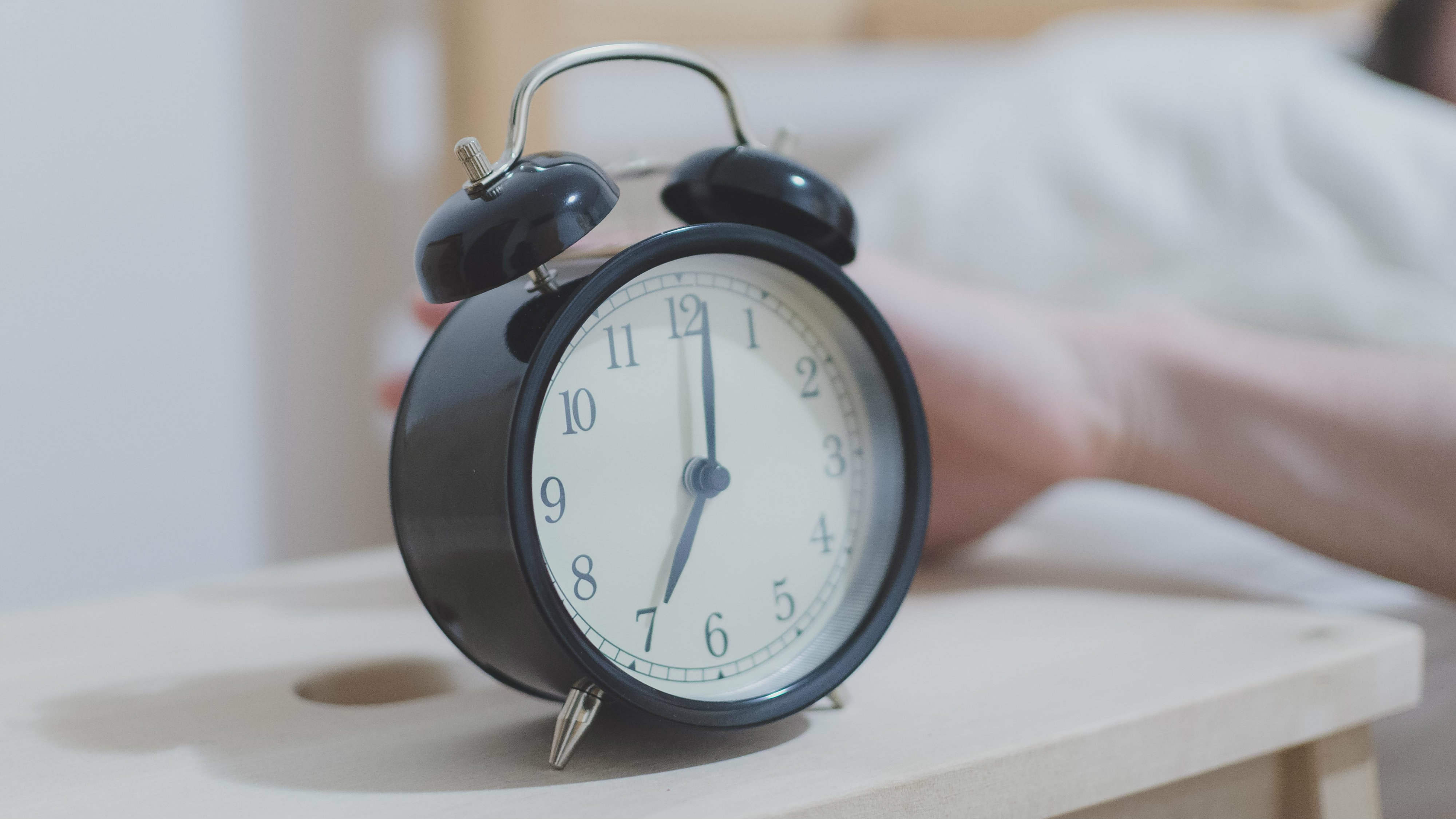Why I stopped using my phone as an alarm clock – and why you should too
Get a proper alarm clock, lazy bones

We’re betting if you opened this article, you use your phone as an alarm clock. It’s likely to be on charge lying on your bedside table, and that’s causing a lot of issues for some people, ranging from stress and anxiety to disturbed sleep and weight gain. It’s far better to leave your phone in another room and switch to one of the best wake-up lights or alarm clocks in order to start your day on the right foot.
I used to set the alarm on my phone the last thing at night, then remain on my phone for at least a few minutes, getting lost in the casino-like virtual world of social media algorithms. Even though I deleted Instagram and have never used TikTok in an attempt to reduce screen time and phone addiction, Reddit and YouTube are just as effective attention traps, drawing me further into the dopamine labyrinth with every swipe of my thumb. Eventually, I’d “come to,” realizing that I’d wasted another 10 minutes, curse, and flick the light.
A wakeup call
The morning was no different. I’d reach for my smartphone to turn my alarm off, look at the screen, see a couple of notifications (perhaps a news story broke overnight, or I had some messages come through on a group chat) and was off. A few more minutes of scrolling might ensue before I got up and really started my day.
Sound familiar? Our phone is our constant companion, even in the moments preceding and following sleep. According to research published by the International Data Corporation, 80% of polled smartphone users reached for their phones first thing in the morning, and many of those checked their phones last thing at night. It’s an addiction, an obsession, and its made its way into every aspect of our daily lives.
Banning the phone from the bedroom could significantly improve our sleep quality and mental well-being, according to research. One study, published by researchers at the University of East London, found that “the risk of smartphone addiction decreases when smartphones are left outside the bedroom,” as “sleeping without smartphones improves sleep, relationships, focus, and wellbeing.”
A better bedtime
Another study published in the medical journal PLoS One found that “restricting mobile phone use close to bedtime reduced sleep latency and pre-sleep arousal and increased sleep duration and working memory. This simple change to moderate usage was recommended to individuals with sleep disturbances.” The message is clear: leave your phone somewhere else, and keep your bedroom a phone-free zone.
Blue light exposure disrupts our circadian rhythms, social media artificially triggers our dopamine, and outrage-focused news articles stir up negative emotions. Keeping your phone by your bed ensures your exposure to all this just as you sleep and just as you wake, bookending your precious reprieve with another dose of mind-hacking. Disrupted sleep leads to exhaustion, anxiety, and even weight gain, according to research from the University of Chicago. Exhausted and craving instant gratifications, you’re more likely to choose bliss-inducing junk foods than healthy options.
The solution? Keep your phone outside the bedroom, replacing it with either an old-fashioned analog alarm clock, a digital one, or a wake-up light such as the Beurer WL50, which imitates natural sunlight with a gentle alarm, like birdsong, to help ease you into wakefulness. Reducing your exposure to your phone last thing at night and first thing in the morning can ensure you sleep through the night and have a more restful bedroom experience, becoming happier and healthier as a result.
Get daily insight, inspiration and deals in your inbox
Sign up for breaking news, reviews, opinion, top tech deals, and more.

Matt is TechRadar's expert on all things fitness, wellness and wearable tech.
A former staffer at Men's Health, he holds a Master's Degree in journalism from Cardiff and has written for brands like Runner's World, Women's Health, Men's Fitness, LiveScience and Fit&Well on everything fitness tech, exercise, nutrition and mental wellbeing.
Matt's a keen runner, ex-kickboxer, not averse to the odd yoga flow, and insists everyone should stretch every morning. When he’s not training or writing about health and fitness, he can be found reading doorstop-thick fantasy books with lots of fictional maps in them.